LLTT Newsletter - July 2024

LLTT - July 2024
Thinking “Faster”
Sooner or later, you'll come across an important speed development tip that may seem vague at first: to truly excel, you must learn to 'think faster.' This advice sounds worthwhile, but what does it really mean to "think faster" when it comes to Teeline?
"Thinking faster" is somewhat misleading. It doesn't mean having rapid-fire thoughts while writing. Instead, it's about dedicating sufficient time and effort during practice to build a solid foundation for speed. This approach will allow your mind to process information more efficiently when you're actually writing.
Speed is a byproduct of mastery, and not its goal.
Here’s another profoundly simple quote you may wish to spend some time thinking about. It holds a very important insight into the nature of speed development.
You will never be “faster” until you have eliminated what is slowing you down.
Many mistakenly believe shorthand is about physically writing faster. However, "thinking faster" actually refers to being well-prepared and building a repertoire of techniques over time. The wise shorthand writer doesn’t rely on tricks - this often leads to gaps in knowledge that become problematic later, especially under pressure. True proficiency comes from understanding fundamentals deeply, so that you may then deploy them rapidly when under the fire of a dictation.
So forget trying to push your brain (or hand) into overdrive. Instead, begin by identifying some things that are holding you back. You must be relentless in this pursuit. If you haven’t thought about it before, now is the time.
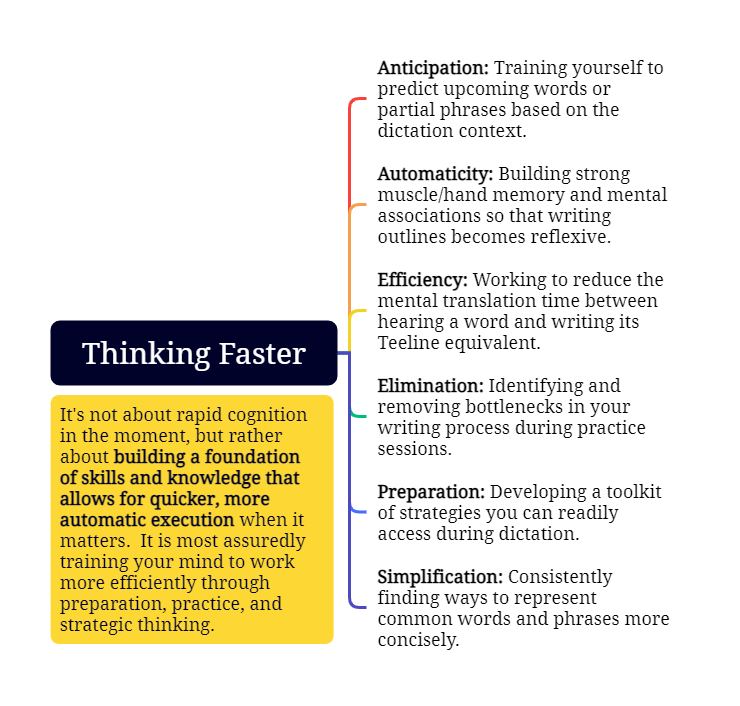
Let's briefly discuss Simplification: finding ways of representing common words and phrases more concisely in Teeline.
Simplification is an important aspect of increasing your writing speed and efficiency. This practice not only saves time but also reduces cognitive load.
Consider the following:
How much time do you currently dedicate to exploring more efficient ways to write everyday words and phrases?
Have you analysed your writing to identify the most common words and expressions in your field or daily use?
Are you actively practising these high-frequency items?
Studying how experienced Teeline writers simplify their writing is a master key. But this is not the only way. As you become more proficient, you will naturally discover opportunities to streamline your own writing. This personal exploration is a critical part of mastering Teeline. Don't be afraid to experiment! Some may not work, but others will significantly improve your speed.
Remember, the goal is to create a system that works best for you while maintaining the core principles of Teeline. Your personal style will emerge as you continue to practise and refine your skills.
Before we wrap up, let’s look at one example. What would be your first inclination in a dictation if “United States of America” was spoken?
While you could certainly write out each of the four words separately (and you SHOULD if this grouping did not immediately come to mind), what about abbreviating it to U-S-A?
In this case, four words are reduced to three letters: U-S-A. Note: You do not generally need to write “of” in this case as it should be self-evident when you transcribe back into longhand.
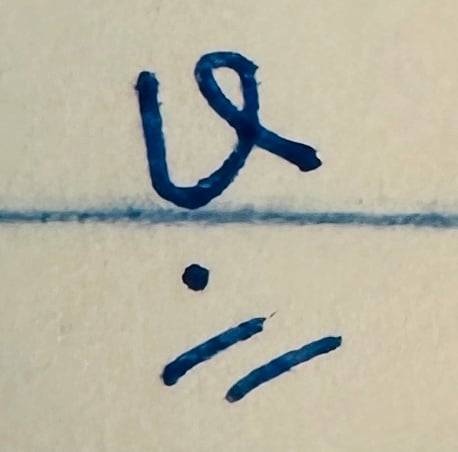
Incidentally, that “dot” underneath is just one way of signalling to yourself that what you have written in an abbreviated form needs to be written out fully when transcribing.
Hopefully, you’re beginning to see there is some merit to “thinking faster”.
The following list of skills and techniques isn't meant to be exhaustive or universally applicable. Instead, it's designed to broaden your perspective on the various components that contribute to thinking more quickly and, in turn, will contribute to more effective shorthand writing.
When considering these tips, keep in mind that mastering shorthand is a personal journey. You may discover concentrating on just one or two aspects significantly enhances your skills, while others might benefit from addressing multiple areas. As you progress, your focus areas will likely evolve. Remember, there's no need to tackle everything simultaneously—take it at your own pace.
"The only journey is the one within." - Rainer Maria Rilke

Thanks for reading!
Be sure to visit us at the LLTT Website, YouTube, Facebook, Instagram, Quizlet and Soundcloud.
As always, if you have suggestions or topics you'd like to see covered in future newsletters, please contact us: https://www.letsloveteelinetogether.com/contact-us.
If you find this newsletter helpful, please help us spread the word and forward to a friend!
A Parting Thought
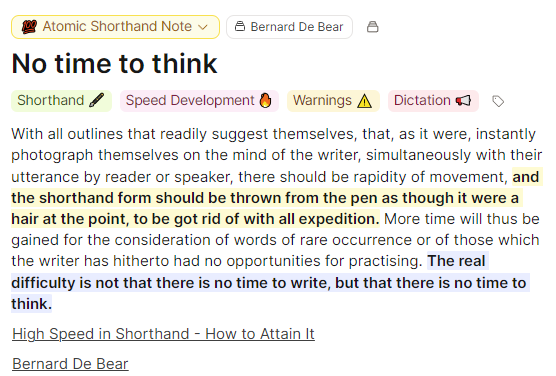
Teeline History from April 1989
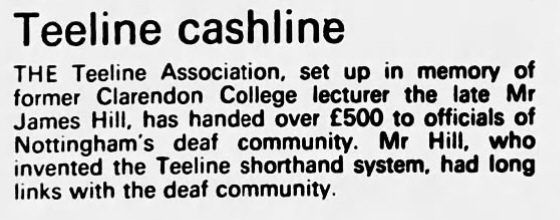
**"Don't Get Worried. Don't Get Stressed. Let's Love Teeline Together."**
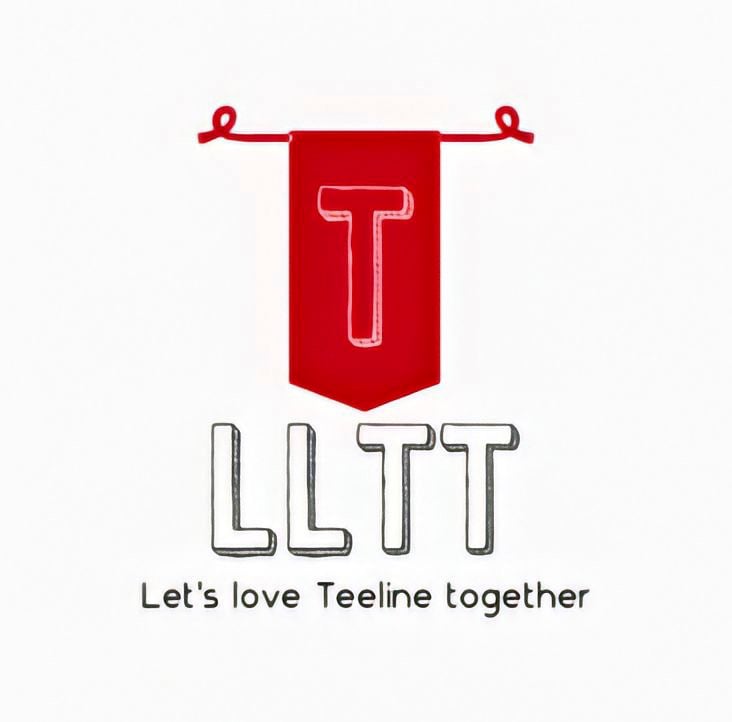
Add a comment: